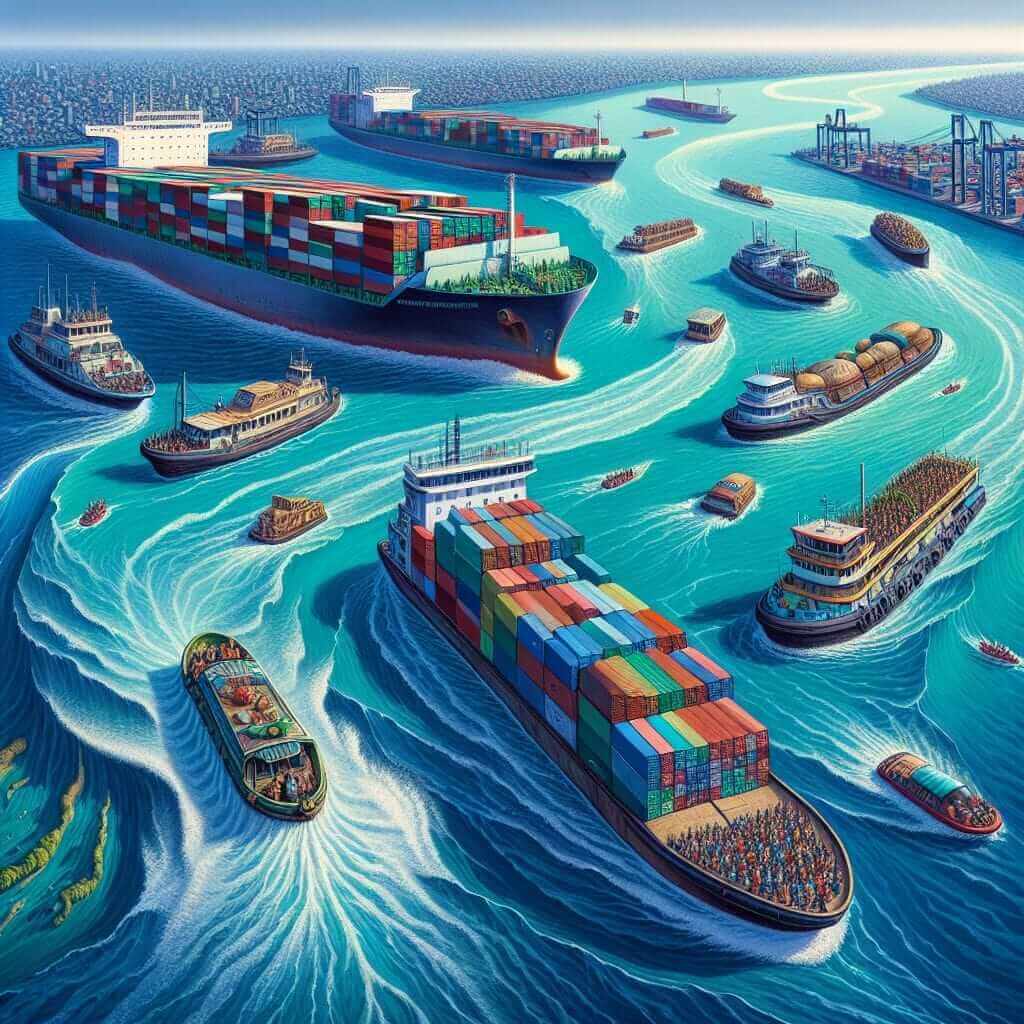As an IELTS instructor with over 20 years of experience, I’ve witnessed countless students grapple with the complexities of the Speaking test, particularly Part 3. This section demands a deeper understanding of concepts and the ability to articulate your thoughts effectively. One topic that often arises is “How does water transport?”, which can seem deceptively simple but requires careful consideration to ace.
Understanding the Scope of “How Does Water Transport?” in IELTS Speaking
Remember, the examiner isn’t assessing your knowledge of complex hydrological cycles. They are evaluating your capacity to:
- Comprehend the question: Can you identify the core theme of “water transportation” and its various facets?
- Analyze and elaborate: Can you break down the concept into different modes of water transport (for goods, people, resources) and discuss their implications?
- Express yourself fluently: Can you use a range of vocabulary related to transport, trade, infrastructure, and environmental impact while maintaining coherence?
- Support your ideas: Can you provide relevant examples and justifications for your statements?
Navigating the “How Does Water Transport?” Discussion
Here’s a breakdown of how to approach this topic effectively:
### 1. Modes of Water Transport:
Begin by outlining the different ways water facilitates transport:
- Maritime Shipping: This involves large vessels carrying goods (cargo ships) or people (cruise ships) across oceans and seas.
- Example: “A significant portion of global trade relies on maritime shipping, with massive container ships transporting everything from electronics to clothing across continents.”
- Inland Waterways: Rivers, canals, and lakes are used for transporting goods and people within a country or region.
- Example: “The Rhine River in Europe is a vital inland waterway, facilitating the movement of goods between industrial centers like Rotterdam and Basel.”
- Passenger Ferries: These vessels transport people across rivers, lakes, or short sea stretches.
- Example: “Passenger ferries are a common sight in cities like Istanbul and Hong Kong, providing a convenient mode of transport across water bodies.”

### 2. Significance of Water Transport:
Discuss the importance of water transport:
- Economic Impact: Highlight its role in global trade, connecting markets, and facilitating economic growth.
- Environmental Considerations: Acknowledge both the benefits (often more fuel-efficient than air transport for goods) and drawbacks (potential for oil spills, noise pollution).
- Historical Context: Briefly mention the historical significance of water transport in exploration, trade routes, and cultural exchange.
### 3. Challenges and Future Trends:
Consider discussing challenges and potential future developments:
- Environmental Concerns: Discuss the need for sustainable practices to mitigate pollution and protect marine ecosystems.
- Technological Advancements: Mention advancements like autonomous ships, alternative fuels, and improved logistics.
- Geopolitical Factors: Acknowledge how factors like piracy, trade disputes, and access to waterways can impact water transport.
Example IELTS Speaking Part 3 Interaction:
Examiner: “What are some of the advantages and disadvantages of transporting goods by water?”
Candidate: “Well, water transport, particularly maritime shipping, plays a crucial role in global trade. It’s generally more cost-effective for transporting large volumes of goods over long distances compared to air freight. However, a major drawback is the potential environmental impact. Oil spills, for instance, can have devastating consequences for marine life. There’s a growing need for stricter regulations and the adoption of eco-friendly practices in the shipping industry to mitigate these risks.”
Tips for Success:
- Expand Your Vocabulary: Familiarize yourself with terms related to shipping, logistics, trade routes, and environmental impact.
- Practice Articulating: Speak your answers aloud to improve fluency and coherence. Record yourself to identify areas for improvement.
- Stay Updated: Be aware of current events related to shipping, trade, and environmental issues, as these can provide relevant examples.
Remember, the key is to demonstrate your ability to understand the concept, analyze it from different angles, and express your ideas effectively. Good luck!